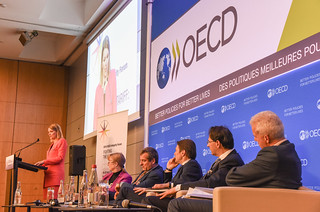Anti-corruption and integrity in the public sector

Global Trade Without Corruption
Fighting the Hidden Tariff
This report provides an analytical framework for studying integrity in trade, combining
insights from OECD work on trade facilitation, responsible business conduct and integrity
in customs. It provides data and evidence supporting the view that trade facilitation
and integrity are mutually supportive objectives, and suggests measures to effectively
tackle corrupt practices affecting global supply chains.
Published on October 17, 2017
TABLE OF CONTENTS
| Foreword | |
| Acronyms and abbreviations | |
| Executive Summary | |
| How trade is shaping the world today | |
| The issue: The cost of corruption hampering trade | |
| Mapping integrity risks in the global supply chain | |
| The twin devils of corruption and illicit trade | |
| Towards integrity strategies for clean trade | |
| Measures to promote integrity in global trade | |
| References |
Powered by OECD iLibrary
Key findings
1
Implementation of trade facilitation measures arising from the WTO Trade Facilitation
Agreement could reduce trade costs by 11.8% for OECD countries.
2
Implementing appropriate governance structures, accountability mechanisms and integrity
policies in customs administrations alone has the potential to reduce trade costs
by up to 1.1%.
3
To effectively address lack of integrity in international trade, a risk-based approach
to promoting integrity is required, combined with ongoing dialogue with relevant stakeholders
outside government.
